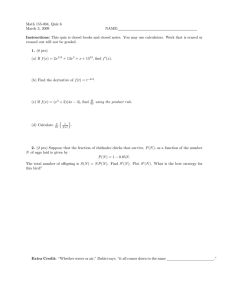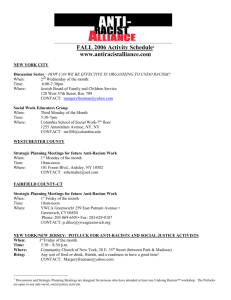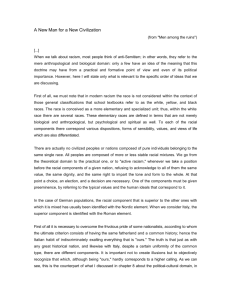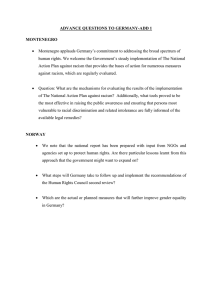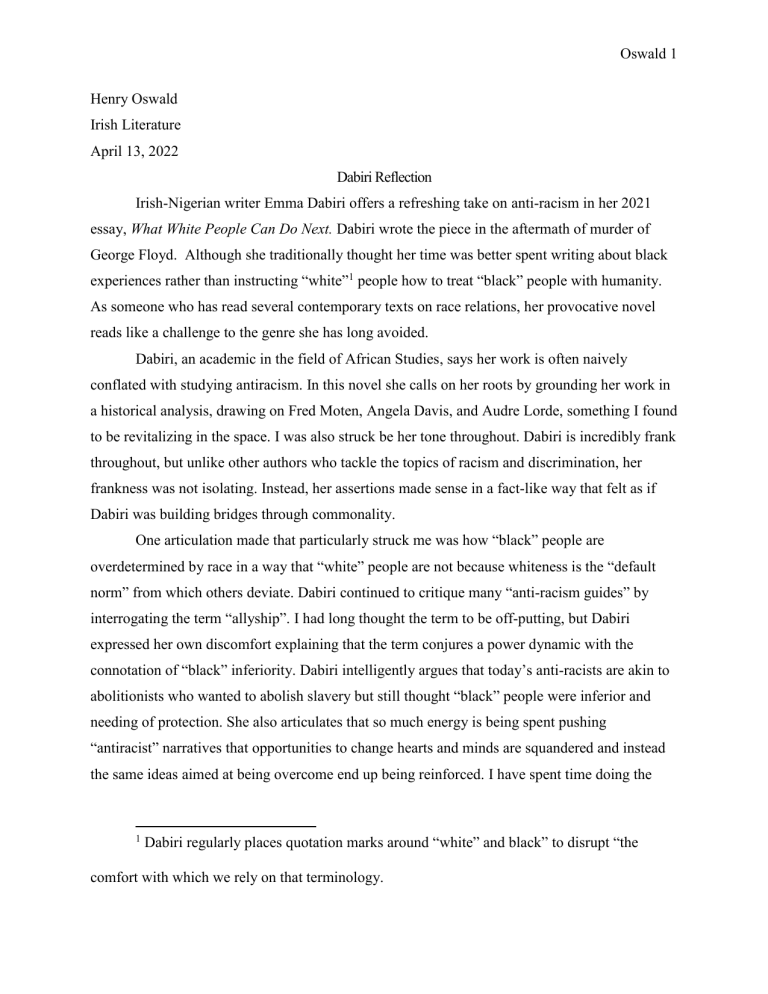
Oswald 1 Henry Oswald Irish Literature April 13, 2022 Dabiri Reflection Irish-Nigerian writer Emma Dabiri offers a refreshing take on anti-racism in her 2021 essay, What White People Can Do Next. Dabiri wrote the piece in the aftermath of murder of George Floyd. Although she traditionally thought her time was better spent writing about black experiences rather than instructing “white”1 people how to treat “black” people with humanity. As someone who has read several contemporary texts on race relations, her provocative novel reads like a challenge to the genre she has long avoided. Dabiri, an academic in the field of African Studies, says her work is often naively conflated with studying antiracism. In this novel she calls on her roots by grounding her work in a historical analysis, drawing on Fred Moten, Angela Davis, and Audre Lorde, something I found to be revitalizing in the space. I was also struck be her tone throughout. Dabiri is incredibly frank throughout, but unlike other authors who tackle the topics of racism and discrimination, her frankness was not isolating. Instead, her assertions made sense in a fact-like way that felt as if Dabiri was building bridges through commonality. One articulation made that particularly struck me was how “black” people are overdetermined by race in a way that “white” people are not because whiteness is the “default norm” from which others deviate. Dabiri continued to critique many “anti-racism guides” by interrogating the term “allyship”. I had long thought the term to be off-putting, but Dabiri expressed her own discomfort explaining that the term conjures a power dynamic with the connotation of “black” inferiority. Dabiri intelligently argues that today’s anti-racists are akin to abolitionists who wanted to abolish slavery but still thought “black” people were inferior and needing of protection. She also articulates that so much energy is being spent pushing “antiracist” narratives that opportunities to change hearts and minds are squandered and instead the same ideas aimed at being overcome end up being reinforced. I have spent time doing the 1 Dabiri regularly places quotation marks around “white” and black” to disrupt “the comfort with which we rely on that terminology. Oswald 2 uncomfortable work of bridge building to combat racism and I identify with the polarization that often comes from guilting and blaming of “white” people for past wrongs and current privilege. While they are imperative to recognize and understand to explain today’s context, they often lead to people putting up walls or opting not to engage. Unlike other writers who have recently wrote on the topic of race relations, Dabiri doesn’t seek to guilt “white” people. She, like me, refers to this narrative as divisive and says it prevents some people from engaging in conversation altogether. Alternatively, Dabiri explains that the problem is in a cloak of “whiteness” that promotes a temptation to feel superior. She shifts the blames from the individual and towards the structures of capitalism, patriarchy, and white supremacy. Dabiri urges us to veer from cancel culture and villainization and redirect the conversation to coalition building, something I think everyone can get behind. To Dabiri, allyship is akin to charity where coalitions offer solidarity. To Dabiri, it’s about finding the source of racial constructs which were invented to stop solidarity, this is where she sees an opportunity to build coalitions. Dabiri also offered commentary on anti-racism infographics that consumed social media platforms in the wake of the “black” Lives Matter movement. This truncated information is often reductive and binary she claims which distorts agendas and doesn’t allow readers to think critically. As a high schooler living in Minneapolis during the summer of racial reckoning, I too was incredibly frustrated by the narrative of these posts and conversation, or lack thereof, that they produced. To me they felt incomplete, empty and misleading, failing to truly contribute meaningfully to what could have been a turning-point for minorities in America. Finally, Dabiri encouraged discourse on the confines of capitalism which can be lost in conversations about racial justice. Historically, groups like the Black Panthers had socialist ideals. These groups saw opportunities for solidarity with other exploited groups and sought for a disruption to class structures. A capitalist analysis is necessary for evaluation of opportunity in a competitive, individualistic economy. I have long thought of capitalism as the end all be all for and efficient economy but, recently I have been increasingly exposed to market economy failures. Systematic oppression through unjust practices like redlining and disproportionate incarceration during the War on Drugs, necessitate an adjustment to our economic systems to truly restore opportunity and achieve racial justice in America. In sum, Daribi’s novel is a necessary read for any who want steps to combatting racism and making social change.
